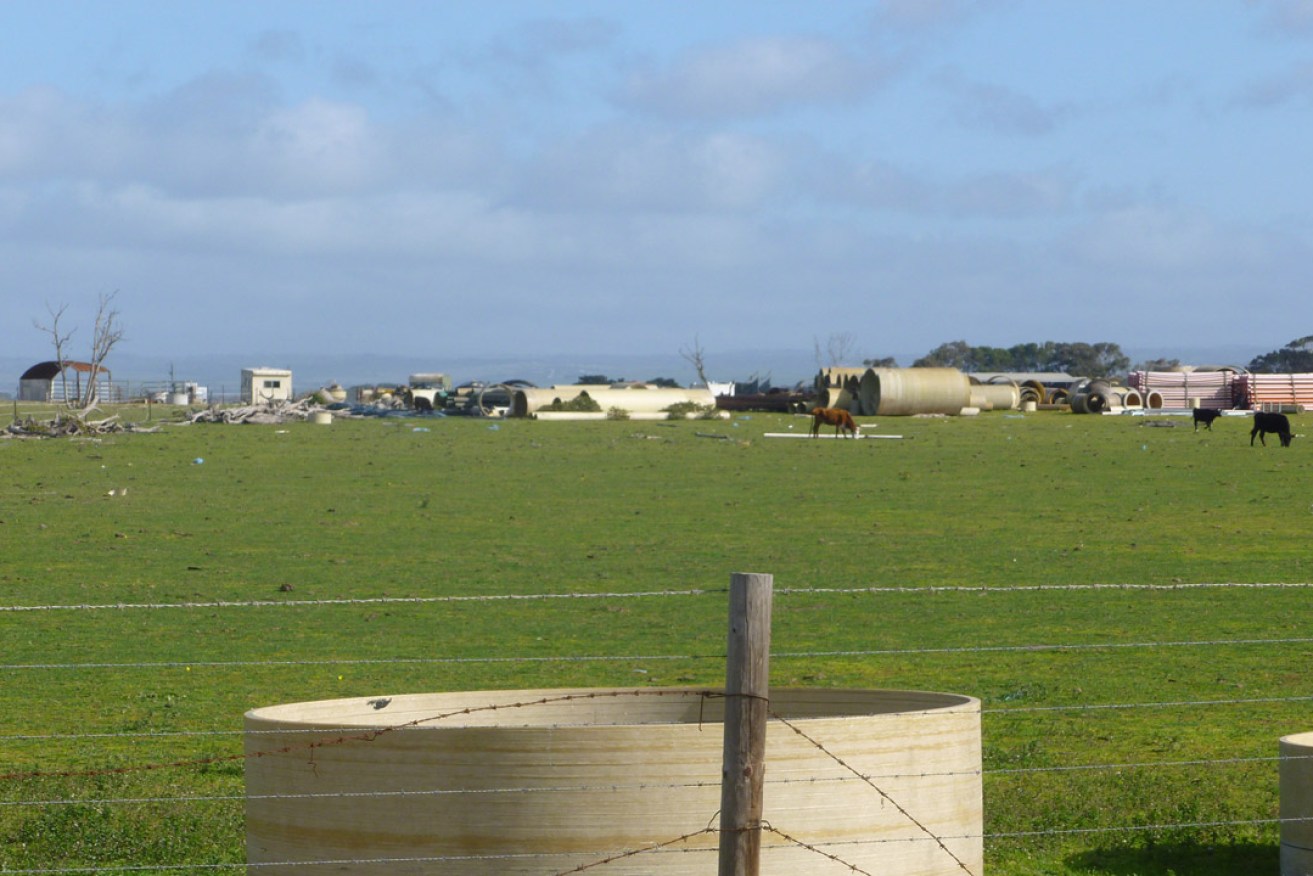SA council confuses farming equipment with “junk”, court finds
A South Australian council has failed to convince a court that a farmer turned part of his farm into a junkyard – admitting much of the ‘junk’ could be used for farming.


Nigel Thorpe's farm. Photo: Alexandrina Council
The Alexandrina Council argued that Clayton Bay horticulturalist Nigel Thorpe had broken the Development Act by changing the use of his property from “general farming” to “general farming and junkyard” (emphasis added) without development approval.
The council’s development compliance officer – identified only as Mr Hill – told the Environment, Resources and Development Court he had inspected Thorpe’s property a number of times between 2013 and 2018 and that much of the material he had observed there “had no utility in terms of a general farming operation”.
But on cross-examination, Hill conceded that many of the items on the property “might typically be found on a farm”.
He also conceded that he had no expertise in farming and accepted that farmers often stored the types of items Thorpe kept on his land.
The council’s own application to the court, which asked that it force Thorpe to remove a series of things from his property to remedy his alleged breach of the Act, listed “various items of farm machinery” among the things it wanted removed.
Thorpe told the court he had grown potatoes, hay, oats and barley, and had been grazing cattle at various times on his property since the early 1980s.
In written submissions to the court, he described a range of equipment that he kept on the land and used for irrigated horticulture, grain cropping, grazing and hay production, and materials he kept to use as silos, water troughs, animal shelters and bore casings.
Judge Jack Costello found that Thorpe had brought “various items of farm machinery, vehicles and sundry equipment” onto the property, over a period of years, and that a “substantial portion” of these materials had been used, or could in future be used, for farming activities – although some of the items may have outlived their use.
“I need to observe that although, at least in the eyes of some, the manner in which various materials are disposed of on the land may render the land to be unsightly, the subject application is not concerned with questions of visual amenity but rather with whether there has been an unlawful change in the use of the land,” Costello writes in his judgment, published last week.
“The lawful existing use of the land is and continues to be that of general farming. The materials on the land, which do not have a general farming purpose, either by themselves or in conjunction with a farming use, are not of a level or nature to constitute a junkyard.
“The Council has not proved on the balance of probabilities that Mr Thorpe has changed the lawful existing use from general farming to general farming and junkyard.”
The judge also concluded it was impossible to know with any precision how much of the materials kept on the property might conceivably be used for farming.
A spokesperson for the council told InDaily this morning that the council “acknowledges the judgement made on the Thorpe matter and is currently considering its options before making further comment”.
Minutes of an Alexandrina Council meeting, available online, show that the council in June last year unanimously rejected an application by Thorne, submitted in early 2016, for the “retrospective placement of 13 shipping containers” on the same property.
Those minutes record that although Thorpe’s application was “not considered to be seriously at variance with the Alexandrina Council Development Plan”, the sporadic placement of shipping containers on the land, located on a conservation zone, represented an “unacceptable visual amenity impact” and was thus rejected.
You can read the court’s full judgment here.




